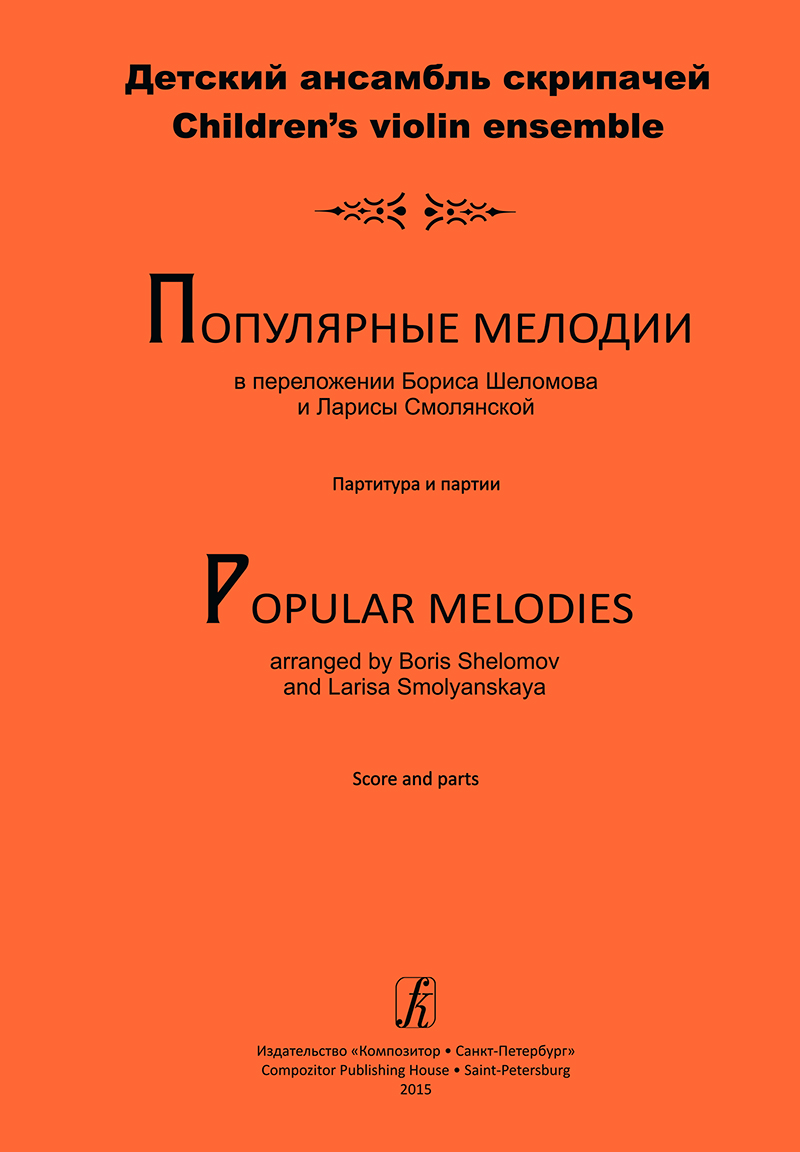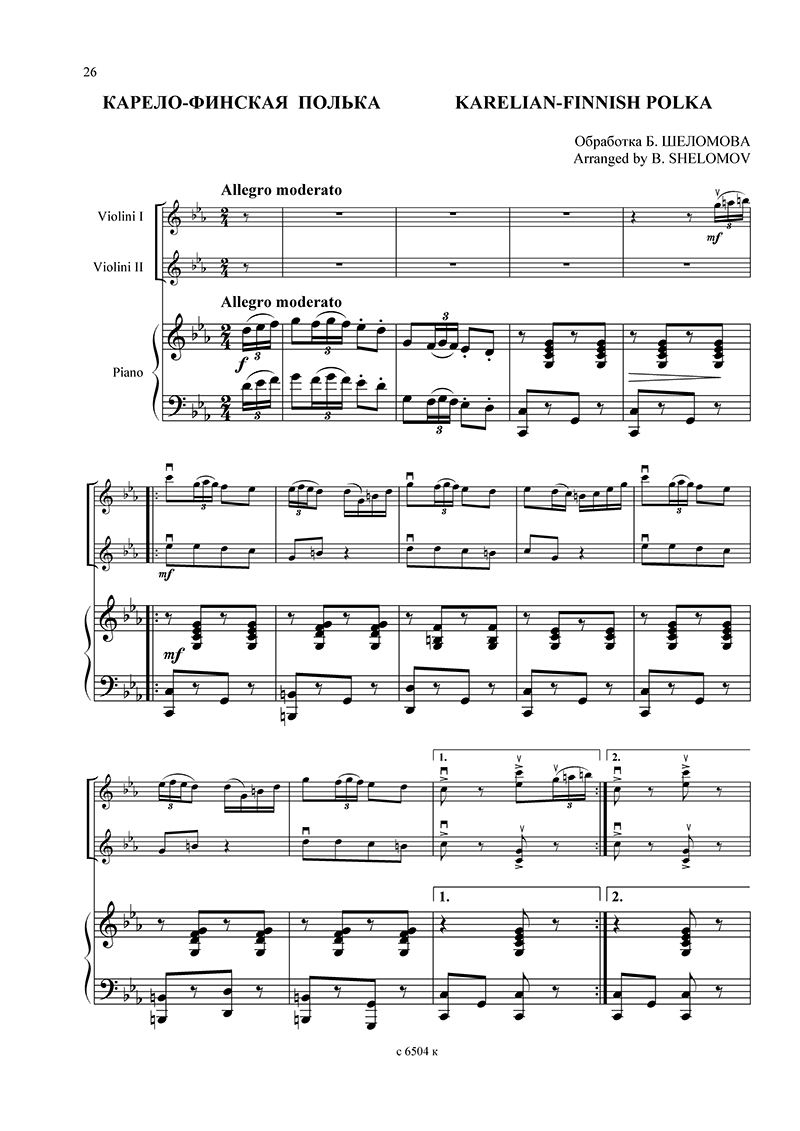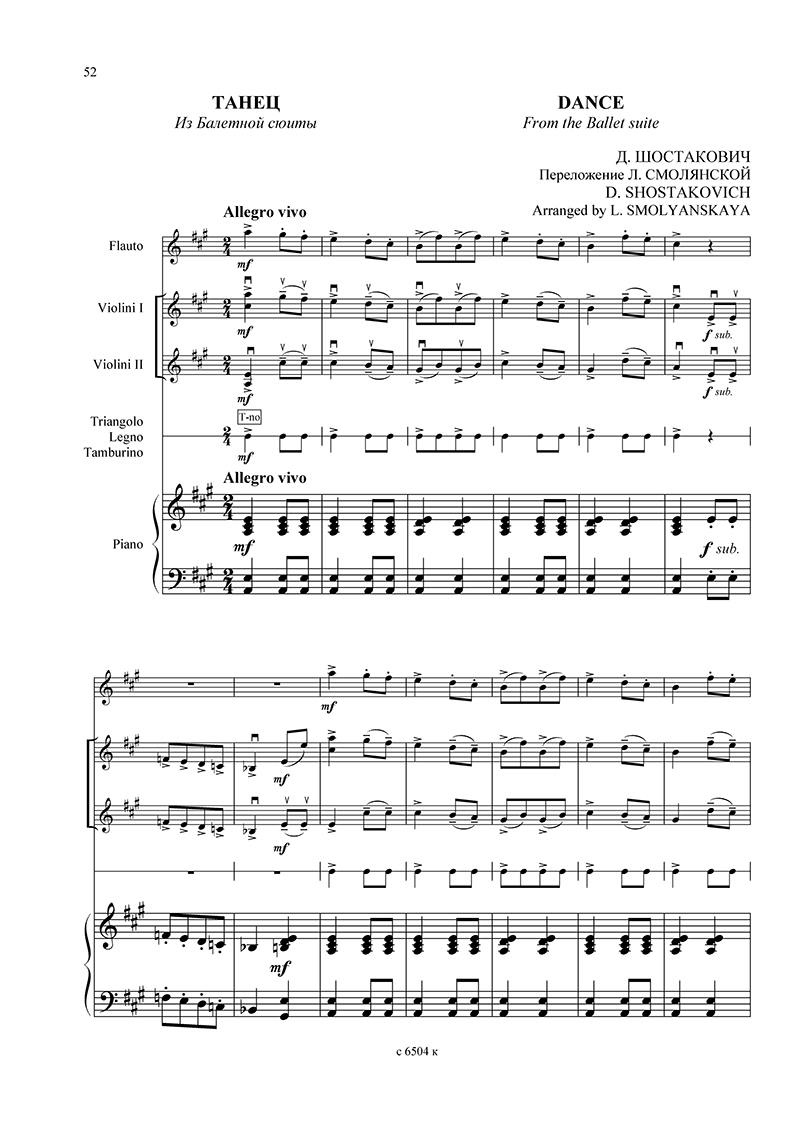
Popular Melodies Arranged for Children's Violin Ensemble. Score and parts
- Author:
- Smolyanskaya L., Shelomov B. Arrang.
- Author (full):
- Authors of arrangements Larisa Smolyanskaya, Boris Shelomov
- Title (full):
- Popular Melodies Arranged for Children's Violin Ensemble. Educational aid for music school. Score and parts
- Number of pages:
- 56+64
Why do you think children who are studying music, need to play in an ensemble?
Correct! Very few can become soloists, but everyone will participate in an ensemble, regardless of their capabilities. Playing in an ensemble liberates motor skills and help to stabilize psychophysical condition of the students. Many children admit that they feel much calmer and more confident on stage while playing in an ensemble than during solo performance.
Participation in ensemble class is one of the most important forms of children’s musical education because collective music-making best serves to introduce children to the music culture, and above all, develops such important qualities as sense of responsibility for ones work, ability to criticize and also accept criticism.
Working with a collective, especially with children, is a very complex pedagogical and psychological process: children, especially in awkward age (9–13 years old), have very vulnerable psyche, therefore the director of the ensemble must be extremely tactful, well-balanced, make remarks without humiliating students personality, and it is better not in front of everybody, but rather one on one with the student.
Contents:
L. Smolyanskaya. From the compiler
D. Shostakovich. SAD SONG. From the operetta “Moscow, Cheryomushki”
P. Tchaikovsky. NEAPOLITAN SONG
V. Temnov. MERRY QUADRILLE
L. Kehler. TYROLEAN SONG
D. Shostakovich. SENTIMENTAL WALTZ. From the Ballet Suite
KARELIAN-FINNISH POLKA
D. Robles. FLIGHT OF THE CONDOR
BEE. Polka
A. Ramнrez. WANDERERS
G. Sviridov. MILITARY MARCH. From the musical illustrations after Pushkin’s novel “The Snowstorm”
D. Shostakovich. DANCE. From the Ballet Suite
B. Shelomov. FANTASY ON THEMES OF SONGS BY I. DUNAYEVSKY
- Author
- Smolyanskaya L., Shelomov B. Arrang.
- Author (full)
- Authors of arrangements Larisa Smolyanskaya, Boris Shelomov
- Title (full)
- Popular Melodies Arranged for Children's Violin Ensemble. Educational aid for music school. Score and parts
- Number of pages
- 56+64



